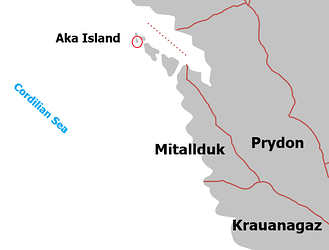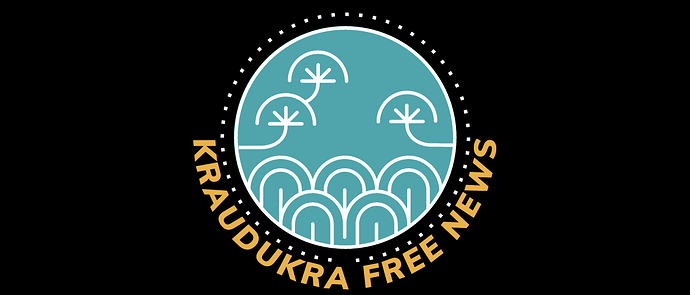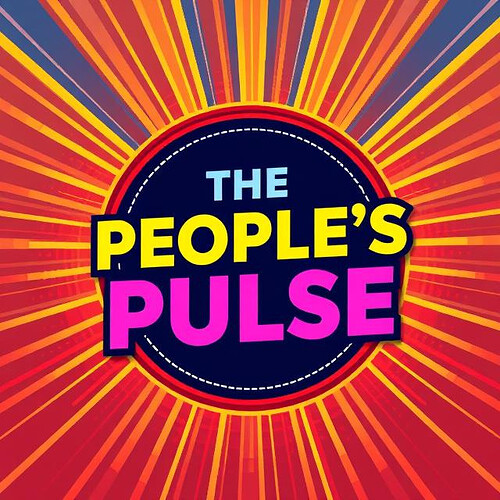Covert Conflicts: Are Krauanagaz and Zuhlgan Fueling Insurgencies in Southern Cordilia?
Alkantara, Krauanagaz— As political instability deepens in both Mitallduk and Visrodin, speculation is mounting that Krauanagaz and Zuhlgan are positioning themselves for a new era of indirect confrontation through proxy conflicts. Reports from intelligence sources and regional analysts suggest that both powers may be seeking to exert influence in the two war-torn nations, using armed factions and insurgencies to further their strategic interests.
Unrest in Visrodin: A Battleground for Influence?
The ongoing crisis in Visrodin has reached a boiling point, with mass protests, urban riots, and rural insurgencies stretching the country’s military to its limits. The newly rebranded Slovesen Republican Army (SRA)— formerly the National Republican Front (NRF)— has vowed to abandon terrorism in favor of a full-scale insurrection against the ruling government of Chairman Anton Todorov. The escalation has led Todorov to order the full mobilization of Visrodin’s military reserves, though recent purges of the officer corps have left the military’s effectiveness in question.
Intelligence leaks and whispers in diplomatic circles suggest that both Krauanagaz and Zuhlgan see an opportunity in Visrodin’s deepening instability. Some reports claim that Krauanagaz has covertly provided material and logistical support to anti-government factions within Visrodin, potentially assisting elements of the SRA in their efforts to overthrow Todorov’s regime. While no concrete evidence has surfaced, military analysts point to the Krauanagazan Federal Defense Intelligence Agency (FDIA) as a likely facilitator of clandestine operations in the country.
According to a leaked diplomatic cable, Krauanagaz views Todorov’s regime as a destabilizing force in the region and sees the SRA as a potential ally in its broader strategy to counter Zuhlgan’s influence. By supporting the SRA, Krauanagaz aims to install a government in Visrodin that is more sympathetic to its interests, thereby gaining a strategic foothold in the region.
A spokesperson for the Krauanagazan State Department flatly dismissed the allegations as, “unfounded speculation aimed at deflecting from the internal failures of Todorov’s government.” However, sources within the FDIA have privately acknowledged that Krauanagaz is, “monitoring the situation closely,” and, “exploring all options to ensure regional stability.”
Zuhlgan, on the other hand, is rumored to be working with elements loyal to Todorov’s government, providing intelligence-sharing agreements, limited security assistance, and indirect financial backing to maintain the existing order. With Todorov increasingly isolated and desperate for allies, speculation grows that he may turn to Zuhlgani military contractors or direct foreign intervention if the insurgency escalates beyond his control.
Zuhlgan’s involvement has reportedly included the deployment of military advisors and the provision of advanced surveillance technology to help Todorov’s forces track and neutralize SRA operatives. Additionally, Zuhlgani contractors are believed to be operating in Visrodin, providing logistical support and training to government troops.
A spokesperson for Zuhlgan’s Foreign Ministry issued a statement categorically rejecting any claims of involvement, calling them, "lackadaisical attempts to shift blame for Visrodin’s instability onto external forces.” However, analysts note that Zuhlgan’s actions are consistent with its broader strategy of maintaining influence over neighboring states through a combination of soft power and covert operations.
As the conflict escalates, the human cost continues to mount. According to Cordilian Human Rights Watch, over 30,000 civilians have been displaced by the fighting, and hundreds have been killed in clashes between government forces and the SRA. The World Forum has called for an immediate ceasefire and the establishment of humanitarian corridors to allow aid to reach affected areas, but so far, neither side has shown a willingness to de-escalate.
The crisis in Visrodin has far-reaching implications for regional stability. If the SRA succeeds in overthrowing Todorov, it could lead to a realignment of alliances in Southern Cordilia, with Krauanagaz gaining a strategic advantage over Zuhlgan. Conversely, if Todorov manages to cling to power with Zuhlgan’s support, it could further entrench authoritarianism in the region and exacerbate tensions between the two rival powers.
Moreover, the conflict has the potential to spill over into neighboring countries, particularly if foreign intervention escalates. Already, there are reports of cross-border raids by SRA fighters and the movement of refugees into adjacent regions, raising concerns about the spread of instability. The outcome of this conflict will not only determine the future of Visrodin but also shape the geopolitical landscape of Southern Cordilia for years to come.
Mitallduk: The Next Front in a Proxy Conflict?
While the crisis in Visrodin dominates headlines, the fractured nation of Mitallduk has quietly emerged as another potential flashpoint in the ongoing rivalry between Krauanagaz and Zuhlgan. Following the collapse of its central government, Mitallduk remains mired in post-war chaos, with competing factions vying for control and foreign powers maneuvering to expand their influence. The recent alignment of the Takaran People’s Army (TPA) and Purity Vanguard (PV) coalition with Zuhlgan has further destabilized the region, triggering internal schisms and drawing the attention of Krauanagaz, which is now reportedly backing rival factions in an effort to counter Zuhlgan’s growing foothold.
Mitallduk’s descent into chaos began with the collapse of its central government following a protracted civil war. The war, which pitted various ethnic and ideological factions against one another, left the country divided and its institutions in ruins. The Takaran People’s Army (TPA) and Purity Vanguard (PV), once bitter rivals, formed a fragile coalition in an attempt to restore order. However, their alliance has been plagued by internal divisions and a lack of popular support, leaving the coalition vulnerable to external manipulation.
In a significant shift, the TPA/PV coalition recently accepted Zuhlgani aid and support in exchange for recognizing Zuhlgan’s dominion over Aka Island, a strategically important territory off Mitallduk’s coast. This move has allowed Zuhlgan to establish a military presence in the region, embedding advisors within the TPA/PV leadership and providing logistical and financial assistance under the guise of post-war reconstruction efforts.
Sources close to Mitallduk’s fractured political landscape suggest that Zuhlgan’s involvement goes beyond mere reconstruction. Reports indicate that Zuhlgani military assets have begun staging operations from Aka Island, reinforcing Zuhlgani dominance over the TPA/PV coalition while deterring outside interference. This expansion of Zuhlgan’s influence has raised concerns among neighboring countries and international observers, who fear that Mitallduk could become a new front in the broader proxy conflict between Zuhlgan and Krauanagaz.
Internal Schisms and Emerging Factions
Zuhlgan’s growing influence has triggered a major schism within the TPA/PV coalition, leading to the emergence of new factions opposed to foreign involvement. Among these are:
-
Heritio Korosha: A far-right xenophobic movement that rejects all foreign influence and advocates for a return to traditional Mitalldukish values. The group has gained traction among disillusioned veterans and rural communities, who view the TPA/PV coalition as traitors for aligning with Zuhlgan.
-
Free Takaran Army (FTA): A breakaway faction of the TPA, the FTA advocates for the restoration of a Takaran-Mitalldukish monarchy and has positioned itself as a nationalist alternative to the Zuhlgan-backed coalition. The FTA has attracted support from urban elites and former government officials who are wary of Zuhlgan’s intentions.
In response to Zuhlgan’s expanding influence, Krauanagaz has reportedly begun funneling resources to factions opposed to the TPA/PV coalition. According to intelligence sources, the Krauanagazan Federal Defense Intelligence Agency (FDIA) has sought out elements of the Free Takaran Army (FTA) and remnants of anti-Zuhlgani factions, encouraging them to resist what they see as Zuhlgan’s creeping annexation of Mitalldukish territory.
Krauanagaz’s involvement is part of a broader strategy to counter Zuhlgan’s regional ambitions. By supporting rival factions, Krauanagaz aims to destabilize the TPA/PV coalition and prevent Zuhlgan from consolidating its control over Mitallduk. However, Krauanagaz’s actions have also drawn criticism from international observers, who warn that foreign interference could exacerbate the conflict and prolong Mitallduk’s suffering.
As the conflict intensifies, the human cost continues to mount. According to Krauanagaz’s Human Rights Commission, over 125,000 civilians have been displaced by the renewed fighting, and thousands have been killed in clashes between rival factions. The World Forum has, too, called for an immediate ceasefire and the establishment of humanitarian corridors to allow aid to reach affected areas within Mitallduk, but so far, no belligerents are prepared to de-escalate.
If Zuhlgan succeeds in consolidating its control over the TPA/PV coalition, it could gain a strategic foothold in the region, furthering its ambitions to dominate Southern Cordilia. Conversely, if Krauanagaz-backed factions manage to destabilize the coalition, it could lead to a prolonged conflict that draws in neighboring countries and exacerbates regional tensions.
Moreover, the emergence of factions like Heritio Korosha and the Free Takaran Army (FTA) highlights the deep divisions within Mitalldukish society. These divisions, fueled by ethnic and ideological differences, could make it difficult to achieve a lasting peace, even if the proxy conflict between Zuhlgan and Krauanagaz is resolved.
Mitallduk has become the latest battleground in the ongoing rivalry between Krauanagaz and Zuhlgan, with both regional powers backing opposing factions in an effort to expand their influence. As the Takaran People’s Army (TPA) and Purity Vanguard (PV) coalition struggles to maintain control, the emergence of new factions and the involvement of foreign powers have further destabilized the region.
Proxy War or Paranoia?
As both Mitallduk and Visrodin descend further into unrest, the fear of proxy wars waged by Krauanagaz and Zuhlgan looms over Southern Cordilia. While neither government has admitted to direct involvement, geopolitical analysts argue that the conditions for indirect conflict are already in place.
International observers warn that such covert interference could drastically deepen the instability in both nations, prolonging civil strife and drawing in regional actors who may see opportunities to expand their own influence. With the Gulf War only recently ending, the last thing Southern Cordilia needs is another prolonged cycle of violence fueled by outside powers.
For now, official denials remain the standard response, but as insurgencies grow bolder in both Visrodin and Mitallduk, and as competing factions shift alliances, the reality of foreign involvement may soon become impossible to ignore.





